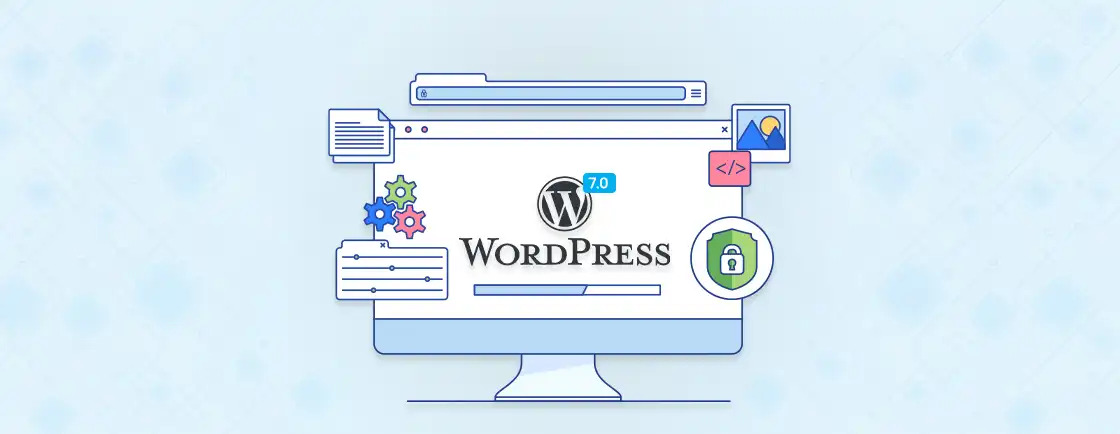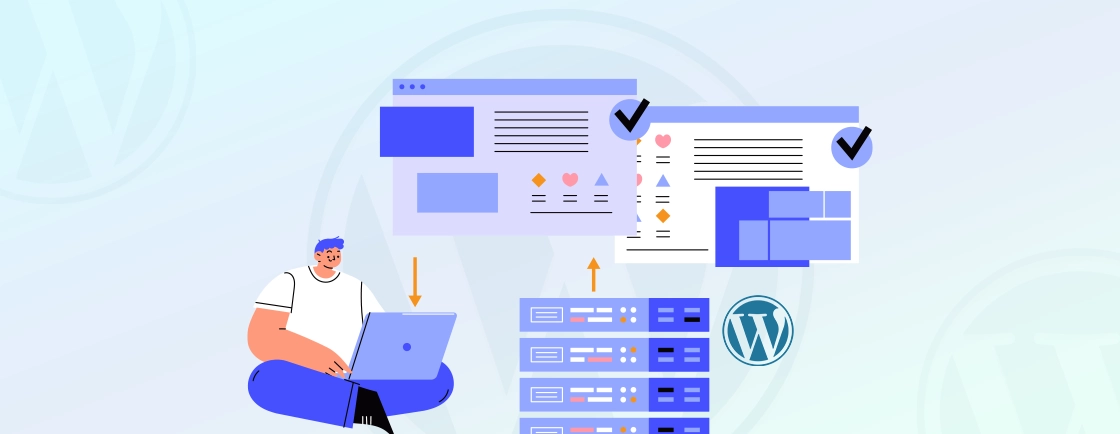Table of Contents
WordPress is the best CMS. That is something you would surely have heard if you’re creating a new website. But there are two types of WordPress: WordPress.com and WordPress.org. While both utilize the powerful WordPress software, they offer fundamentally different experiences. For now, we will focus on the WordPress.org, i.e. Self-hosted WordPress.
You can install and set up WordPress(.org) on your own web hosting to have complete control and flexibility over your website. But as the saying goes, “With great power comes great responsibility”. So you need to be careful when setting up WordPress for your website.
In this blog, I’ll try to explain how a professional WordPress development company would set up the CMS and start the site building process. Let’s begin.
What is Self-hosted WordPress?
Self-hosted WordPress is WordPress.org, the free, open-source version of the most popular CMS available. Unlike WordPress.com, which offers a hosted platform with limitations, self-hosted WordPress gives you complete control over every aspect of your site. Here’s a breakdown of what that entails:
- Your Own Domain Name: You choose a unique web address (like yourbusiness.com) that reflects your brand and makes it easy for visitors to find you.
- WordPress Hosting: This is the digital space where your website’s files and data reside. You’ll need to choose a WordPress hosting provider to rent this space. When making this decision, you must first compare WordPress hosting vs shared hosting.
- Installing WordPress Software: The software itself is free and open-source, downloadable from WordPress.org. You’ll then install it on your web hosting to power your website.
- Customization: With self-hosted WordPress, the sky’s the limit! You can choose from thousands of free and premium themes to define your website’s look and feel. And selecting the best plugins can help add features like contact forms, eCommerce shops, or SEO optimization.
It requires a bit more technical know-how compared to WordPress.com. But the trade-off is the freedom and flexibility to build a website that truly stands out.
Why Choose Self-hosted WordPress?
As opposed to its hosted alternative (WordPress.com), the self-hosted WordPress offers more control over the design and features of your website. Here are a few advantages:
- Unparalleled Design Control: Self-hosted WordPress grants access to a vast library of customizable themes, both free and premium. Install the suitable theme for a unique brand identity to ensure a strong and lasting first impression on your target audience.
- Extend Functionality with Powerful Plugins: From integrating eCommerce solutions and contact forms to enhancing SEO for optimal search engine visibility, you can install a plugin for everything.
- Monetization Without Restrictions: Self-hosted WordPress grants complete control over your website’s monetization strategy. Integrate advertising solutions, establish a robust online store to showcase your products or services, etc. The possibilities are limitless. You retain complete ownership and control over your revenue streams.
- Enhanced Data Security and Privacy: With self-hosted WordPress, you have full ownership of your website’s data. It helps you determine how it’s backed up, secured, and utilized. You can ensure peace of mind and adherence to data privacy regulations.
- Scalability for Sustainable Growth: Self-hosted WordPress allows you to effortlessly upgrade hosting plans for enhanced performance and leverage new plugins to incorporate advanced features whenever needed. Your website becomes a scalable platform that reflects your ongoing success, provided your environment meets the minimum WordPress server requirements.
So, do you want to make the best of these benefits? Then hire WordPress developers.
How to Set Up Self-hosted WordPress?
Now that you have decided to go with WordPress.org, it’s time to see how to set it up for your website. Let’s look at the process.
Step 1: Choose a domain name
The first step in the process is to choose a unique domain name for your website. Pick a name that’s memorable, easy to spell, and reflects your brand identity. A domain name registrar can help you search for available options and register your chosen web address.
Step 2: Select a WordPress hosting
Since WordPress.org is a self-hosting platform, you will need to choose a WordPress hosting provider. It provides the storage space and computing power needed for your website to function smoothly.
Research different hosting providers to find one that offers features and resources that align with your website’s needs. Consider factors like storage space, bandwidth allocation, scalability options, and customer support quality.
Step 3: Install WordPress
Most web hosting providers offer user-friendly one-click installation options for WordPress. This simplifies the process significantly. If your provider doesn’t offer a one-click installer, you can still install WordPress manually by uploading the software files using an FTP client.
Step 4: Configure the Database Settings
WordPress utilizes a database to store your website’s content, like pages and posts along with images. During the installation process, you’ll be prompted to create a database and provide credentials for access. Your web hosting provider should offer guidance on this step, but don’t hesitate to reach out to their customer support if you encounter any difficulties.
Step 5: Choose a Theme and Customize Your Website
You can find a variety of themes on the WordPress admin dashboard. Choose a theme that complements your brand identity and resonates with your target audience. Many themes offer customization options. It helps personalize the layout, colors, and fonts and create a website that’s uniquely yours.
Step 6: Install Essential Plugins
Plugins are powerful tools that extend the functionality of your WordPress website. Start by choosing the best WordPress plugins for security, SEO optimization, and performance enhancement. These core plugins will safeguard your website, improve its search engine ranking, and ensure a smooth user experience for your visitors.
Step 7: Set up Security Protocols
Security should be an ongoing priority for any website owner. Regularly update WordPress along with the themes and plugins to address potential security vulnerabilities. Implement strong passwords and two-factor authentication for added security.
Consider additional WordPress security measures like website backups and malware scanning to further protect your website and its valuable content.
That concludes the set up of WordPress. Now you can go ahead and create the best WordPress website. But if you need help with the process, consult with our WordPress web development company.
Conclusion
Self-hosted WordPress offers a powerful and flexible solution for creating and managing websites. By choosing this option, you gain full control over your online presence, from design customization to functionality expansion.
While it requires more technical knowledge and responsibility than managed alternatives, the benefits like cost-effectiveness and better customization make it a better option. Whether you’re a blogger, small business owner, or aspiring web developer, self-hosted WordPress provides a robust platform to bring your digital vision to life.
So if you want high-quality websites, consult with our WordPress experts today!
FAQs on Self-hosted WordPress
Is self-hosted WordPress free?
The WordPress software itself is free and open-source. However, there are associated costs like domain name registration and website hosting. There are also premium themes and plugins that require additional investment.
Is self-hosted WordPress difficult to use?
While self-hosted WordPress offers more technical aspects compared to website builders, it’s generally considered user-friendly. A vast amount of online resources, tutorials, and forums exist to help you navigate the setup process and ongoing maintenance.
Is WordPress.org secure?
Security is an ongoing responsibility for any website owner. Regular updates, strong passwords, and additional security measures like backups and malware scanning are crucial for safeguarding your self-hosted WordPress site.
Create with WordPress CMS
Build flexible and scalable websites using WordPress's powerful content management system.





